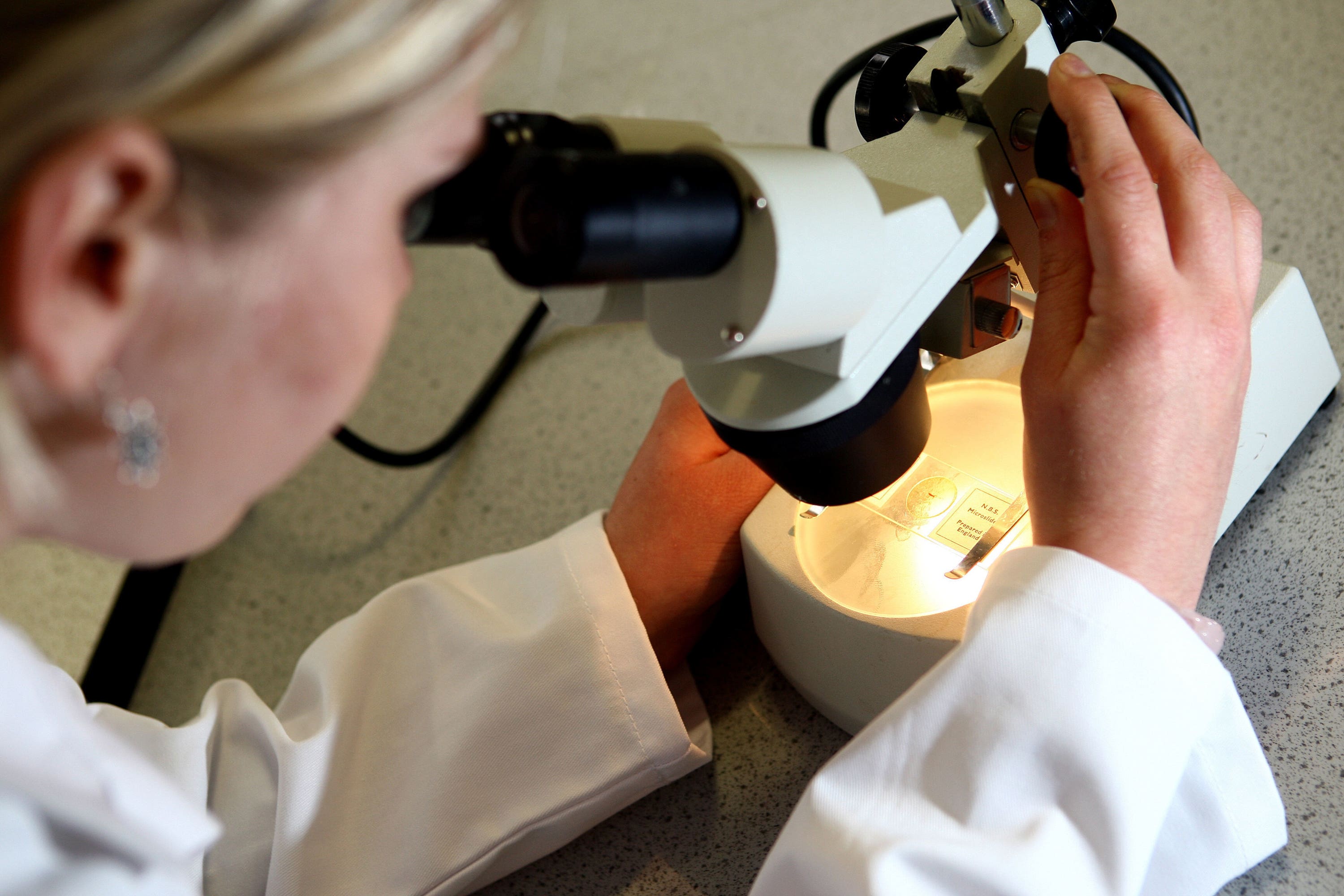New hope for kidney cancer treatment using existing drugs
Researchers are exploring whether focussing on a specific cell type can be used to effectively prevent the cancer from forming or progressing.

Your support helps us to tell the story
From reproductive rights to climate change to Big Tech, The Independent is on the ground when the story is developing. Whether it's investigating the financials of Elon Musk's pro-Trump PAC or producing our latest documentary, 'The A Word', which shines a light on the American women fighting for reproductive rights, we know how important it is to parse out the facts from the messaging.
At such a critical moment in US history, we need reporters on the ground. Your donation allows us to keep sending journalists to speak to both sides of the story.
The Independent is trusted by Americans across the entire political spectrum. And unlike many other quality news outlets, we choose not to lock Americans out of our reporting and analysis with paywalls. We believe quality journalism should be available to everyone, paid for by those who can afford it.
Your support makes all the difference.Researchers say a new study of kidney cancer offers hope for treating the disease using existing drugs.
The study of the cancer at a single-cell level has discovered a potential drug target to treat renal cell carcinoma – a cancer with a high death rate that is hard to detect.
According to researchers from the Wellcome Sanger Institute, the University of Cambridge and Cambridge University Hospitals, immune cells known as macrophages that express the gene IL1B are crucial to tumour development.
I’m optimistic that targeting IL1B macrophages may provide us with a way to treat renal cell carcinomas without resorting to surgery
The findings suggest IL1B macrophages could be a promising therapeutic target to treat kidney cancer, given this cell type has already been targeted using existing drugs that prevent lung cancer.
Researchers are now exploring whether focussing on the cell type can be used to effectively prevent the cancer from forming or progressing.
Renal cell carcinoma (RCC) is the seventh most common cancer in the UK, with three quarters of cases and the majority of deaths caused by clear cell renal cell carcinoma (ccRCC).
Researchers say the disease has a 50% death rate, partially because three in five patients show no symptoms until the cancer is at a late stage.
Dr Thomas Mitchell, a senior author of the study from the Wellcome Sanger Institute and the University of Cambridge, said: “I’m optimistic that targeting IL1B macrophages may provide us with a way to treat renal cell carcinomas without resorting to surgery.
“This will be particularly important for patients with VHL (Von Hippel-Lindau) disease because we should be able to prevent tumours forming in the first place by focusing on their genetic roots, rather than waiting for them to grow and removing them.
“As is the case for all cancers, the earlier we can intervene the better.”
Many RCC tumours form when both copies of the VHL gene are switched off.
A subset of patients have inherited kidney cancer, including VHL disease which is a genetic condition where one copy of the VHL gene is switched off from birth.
The second copy of VHL is usually switched off as a result of a common genetic event that often occurs in early life, leading to the formation of innumerable tumours.
John Hepworth, 62, is a VHL patient with RCC who was diagnosed in 2013 and has since become one of the trustees of the VHL UK/Ireland charity.
He said: “We’ve known for decades that there was something going on in our family history, that there was something wrong.
“Out of the last five generations directly linked to me, four of my family members have died in their forties, and the fifth died at 56.
“I made it to 53 until the disease presented itself, which is fairly late compared to some people. Since being diagnosed my sister and uncle have had genetic testing.
“While my wife and I don’t have children, my sister and my uncle do, and thankfully they were both negative. I take a lot of comfort knowing that after all these decades, it stops with me.”
He added: “As a community, most of us are desperate for some sort of treatment that can at least improve the situation, which includes constant scans and surgeries.
“While there are possibilities in the pipeline, there is nothing other there for us yet.
“Research is crucial if we are to find something to help, and it’s great that there is so much research, such as this, going on to try and find other options.”
In the new study, researchers looked at more than 270,000 single cells from 12 patients with kidney tumours.
Samples were analysed from different parts of the tumour as well as normal kidney tissue.
The analysis highlighted a particular type of immune cell, a macrophage expressing the gene IL1B, as abundant at the fringes of tumours.
The study is published in Cancer Cell journal.